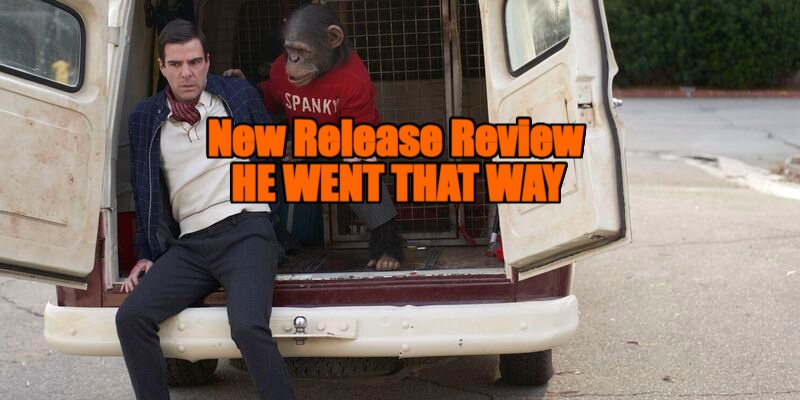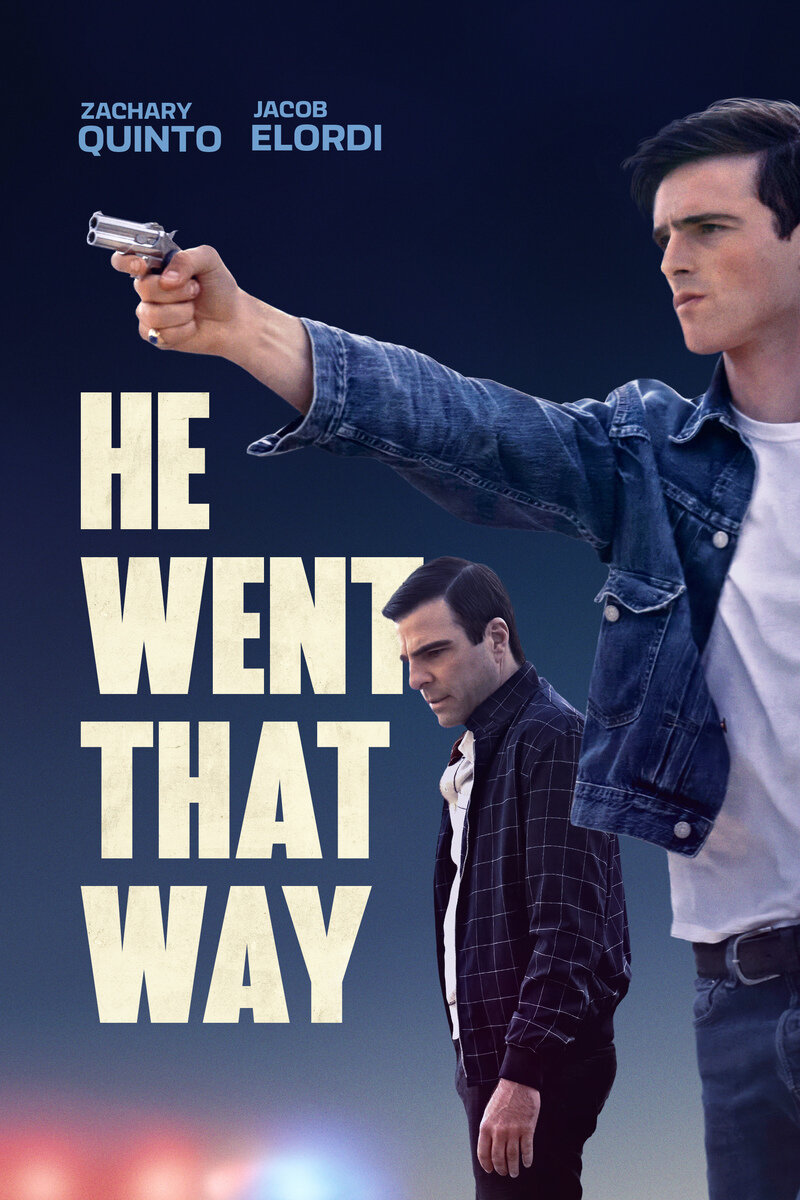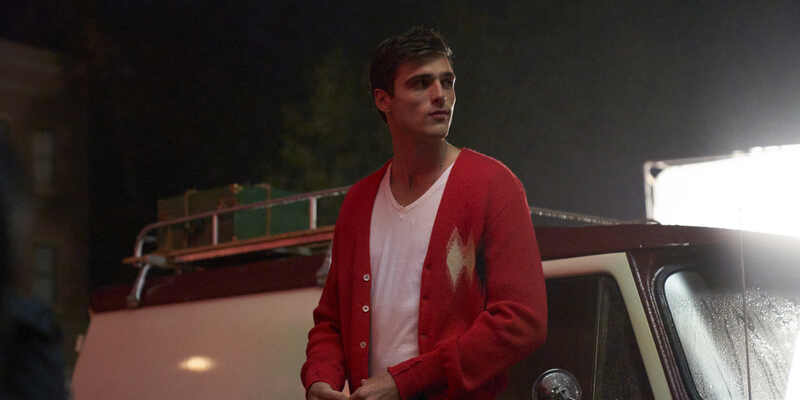
Review by
Eric Hillis
Directed by: Jeff Darling
Starring: Zachary Quinto, Jacob Elordi, Patrick J. Adams

In 1964, animal trainer Dave Pitts was driving across America with precious
cargo - his performing chimp Spanky - when he picked up a young hitch-hiker
named Larry Lee Ranes. Unbeknownst to Pitts, Ranes was a serial killer who
had murdered two gas station attendants and another motorist in the previous
couple of weeks. For three days, Pitts was terrorised by his passenger but
fortunately escaped with his life.
Working from the book 'Luke Karamazov' by author Conrad Hilberry, director Jeffrey Darling (who sadly passed away mere weeks after
completing production on his directorial debut) and screenwriter Evan M. Wiener
have heavily fictionalised this encounter.
He Went That Way opens with a disclaimer stating "This really
(mostly) happened," but the dynamic between the two men is rendered in such
a puzzling fashion that it's impossible to take any of it at face
value.

The names have been changed with Pitts now becoming Jim Goodwin and Ranes
now Bobby Falls, which is odd as the real life Pitts is interviewed over the
closing credits. Jim is played by Zachary Quinto with a thick
Minnesotan accent as though he's auditioning for a role in the next season
of Fargo. The role of Bobby is occupied by current hunk du jour
Jacob Elordi.
From the off, it doesn't make sense that these two men would cross paths.
We're told that Jim is short on cash and could use a co-driver, but the
hitch-hiking Bobby screams dangerous delinquent. Pitts claims he picked up
Ranes because he was well-dressed and even thought he might be a travelling
Mormon missionary. Clad in denim jacket, white t-shirt and drainpipe jeans,
the fictional Bobby is a poster child for trouble, the sort of greaser who
combs his hair with a flick-knife. The initial encounter is shot in a manner
that hints at Jim feeling a sexual attraction for the handsome young
hoodlum, but this is never expanded on.

If you can suspend disbelief enough for Bobby to get in the passenger seat,
you'll be tested by much of what follows. Bobby immediately begins acting
like a creep, but Jim never seems all that perturbed. When they pull into a
motel for the night, Bobby pulls a pistol on Jim and takes his wallet and
wedding ring before sticking up the clerk. Unbelievably Jim stays the night
in the motel and doesn't seem particularly bothered.
The character of Jim is a mess. He's given several opportunities to get
away from Bobby but never does so, and we're never given a plausible
explanation for why he sticks around. As he did with his Elvis in Sofia
Coppola's
Priscilla, Elordi plays Bobby like a Frankenstein's monster, a sometimes sympathetic
freak who seems to suffer from defective wiring. The presence of Spanky
appears to have a calming influence on Bobby, who even breaks into a
charming smile when the beast disarms him emotionally. But it's simply not
enough to make us believe that Jim would adopt feelings that are either
paternal or perverted towards this scary young man. Jim doesn't just put his
own life at risk, with the threat that Spanky might fall victim to Bobby's
rage permeating throughout. At one point Jim even endangers a pair of
teenage girls by introducing them to Bobby, leaving us to wonder what on
earth he was thinking in doing so.

The 1964 setting is rarely believable and mostly rendered through costumes
and cars. It doesn't help that the soundtrack exclusively features songs
from the psychedelic second half of the '60s. The decision to employ a
performer in a costume (Phoenix Notary) rather than an actual chimp
proves an avoidable distraction. Quinto struggles to find the heart of his
baffling character and plays it somewhere between Steve Martin and Ben
Stiller. Though lumbered with a one-dimensional troubled thug stereotype,
Elordi is quite magnetic and genuinely intimidating.
He Went That Way occasionally hints at a more interesting
film, one that uses the relationship between its protagonists to examine the
cultural shifts occurring in America in the mid-60s. Struggling to find gigs
for Spanky, Jim represents a type of entertainment that was in its death
throes while Bobby embodies an uncertain and unpredictable future. The movie
never settles on this idea however and too often gets lost by taking
narrative shortcuts that ultimately leave it lost in a desert of its own
indecisiveness.


